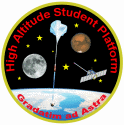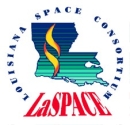



Payload 08 Information
Payload Flight Number:
Institution:
Payload Title:
ARIES-GPS
Student Leader:
Faculty Advisor:
Payload class:
SMALL
Payload ID Number:
08
Mass:
2.82 kg
Current:
0.45 A
Serial Downlink:
Yes, Not Specified
Analog Downlink:
Not Specified
Serial Commands:
Not Specified
Discrete Commands:
No
Payload Specification & Integration Plan
Due: 06/22/2012
Delivered:
Payload Integration Certification
Scheduled: 08/03/2012
Actual:
Flight Operation Plan
Due: 07/30/2012
Delivered:
Final Flight / Science Report
Due: 12/14/2012
Delivered:
Abstract:
As part of UIPR's effort to develop its CubeSat program, each year we develop different sub-system and test them on the HASP platform to evaluate the performance of these sub-systems. This year the goal is to fly and compare the performance of two different dual frequency GPS receivers. The CASES (Connected Autonomous Space Environment Sensors) GPS receiver is a space weather monitor, while the Novatel GPS receiver is a COTS unit. Data collected from these GPS receivers will be used to characterize the line-integrated electron density between the receiver and GPS satellites. The GPS derived total electron content (TEC) will be compared to simulations from state of the art space environment models, such as the Thermosphere-Ionosphere-Mesosphere Energetics General Circulation Model along the HASP flight trajectory. In addition the data will be employed to observe gravity waves for the parameterization of momentum flux into the stratosphere. Proof of concept atmospheric profiling with GPS radio occultation will be performed. The project will involve 8 undergraduate students under the mentorship of Dr. Hien Vo. The space engineering program at UIPR is supported by a grant from Puerto Rico Space Grant and the government of Puerto Rico to train aerospace workforce for the island. |